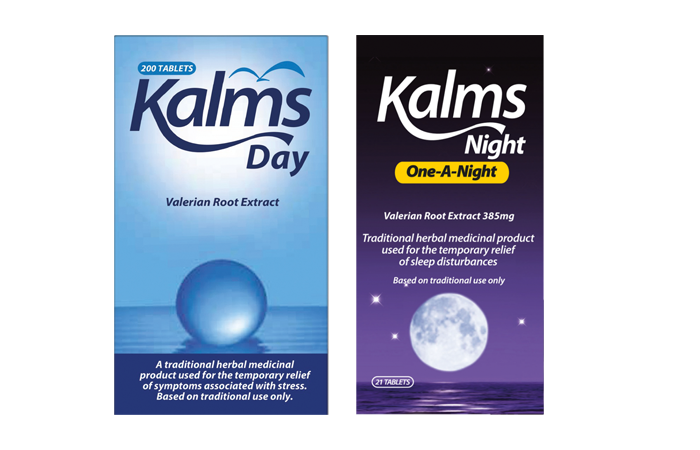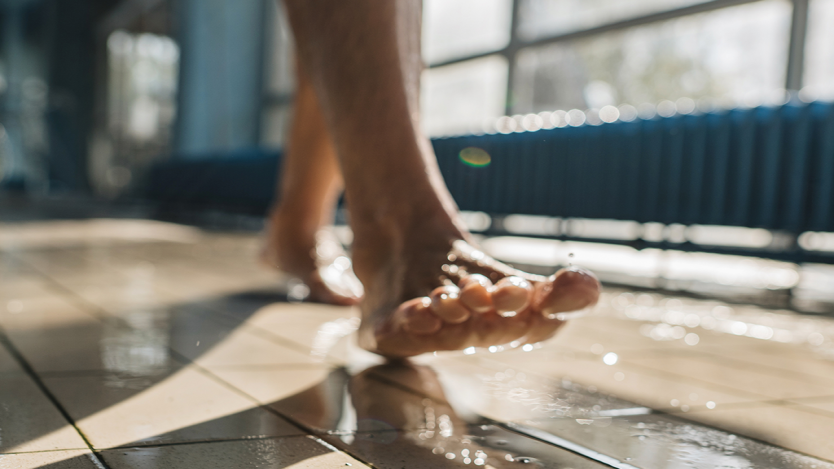In OTC Category Reviews
Follow month by month updates on topics including asthma, mental health and skin conditions and be able to provide informed advice to customers at the counter.Bookmark
Sleeping is an essential part of a healthy routine, “powering the mind, restoring the body, and fortifying virtually every system in the body”, according to the Sleep Foundation.
The amount of sleep needed varies largely depending on age group. NHS guidelines indicate that typically, adults need seven to nine hours, children need nine to 13 hours, whilst toddlers and babies need 12-17 hours – although this can fluctuate depending on the individual.
Many people will experience sleep problems at some point in their life which is often solved when a certain situation or worry has been alleviated, says The Sleep Charity. Sometimes, however, these problems can persist, forcing an individual into a significant sleep deficit often known as insomnia.
Insomnia is a sleep disorder where people have difficulty getting to sleep or staying asleep for long periods of time. It is usually classed in two categories: short-term insomnia (less than three months) or long-term insomnia (over three months).
The most common causes of insomnia are:
- Mental health conditions such as stress, anxiety or depression
- Alcohol, caffeine, nicotine or recreational drug usage
- Jet lag
- An overactive thyroid
- Menopause.
Mind games
There’s a significant relationship between sleep and mental health, where living with a mental health problem can influence how well you sleep and vice versa, according to mental health charity Mind.
Stress and anxiety are the two key influences. “Stress is our body’s reaction to pressures from a situation or life event,” says Samantha Ross, Kalms product manager. “In many everyday situations stress can be seen as a normal reaction that helps keep us awake and alert, but when stress becomes excessive or persists over a period of time the opposite effect happens.”
“When our internal neuro-chemical systems are working normally, they regulate biological processes like sleep, appetite, mood and energy levels,” explains Dr Irshaad Ebrahim, neuropsychiatrist and co-founder of The London Sleep Centre. “If we are stressed, the adreno-cortical system is dysregulated and our energy sources are diverted, resulting in sleep disruption and mood changes.
“Before we sleep it’s important to de-stress, reducing levels of cortisol, and replacing them with increased levels of melatonin, the hormone released in the brain that signals to the body it’s time to sleep.”
As an individual continues to have disturbed sleep, a cycle is created where not getting enough sleep deteriorates mood, productivity and ability to concentrate, which in turn emphasises feelings of stress and anxiety. Physical aspects of stress can also lead to an increased risk of respiratory problems, heart disease, diabetes and obesity.
“Many peoples’ sleep issues are worsened through anticipatory stress, whereby we fear an outcome before the event has taken place,” adds Dr Ebrahim. “The stress-sleep cycle is when feelings of stress stop you from achieving a sufficient night’s sleep, or when the thought of not achieving a good night’s sleep intensifies feelings of stress, thus exacerbating the cycle and making it harder to break.”
Other mental health problems
These can make an individual spend more time in bed and sleep more often
This often causes flashbacks, nightmares or night terrors that have a significant effect on sleep.
For example, an individual may hear voices or hallucinate.
These can cause side effects such as insomnia, disturbed sleep and nightmares.
“Sleep powers the mind, restores the body and fortifies virtually every system in the body”
Sleep on it
Most of the time, insomnia can get better – or completely go away – if an individual adjusts their lifestyle habits. For example, customers should make sure to not:
- Smoke or drink alcohol, tea or coffee at least six hours before going to bed
- Eat a big meal late at night
- Exercise at least four hours before bed
- Watch television or use devices like smartphones right before bed
- Nap during the day
- Sleep in after a bad night’s sleep.
Sleep hygiene routine
This can be set by having a fixed wake-up time; prioritising sleep; making gradual adjustments and not having too many naps.
This could include staying consistent, allowing 30 minutes for winding down, dimming lights, unplugging from electronics and practising mindfulness.
This involves getting daylight exposure and being physically active.
This will vary from person to person but could typically include having a comfortable mattress and pillow and blocking out light and noise.
Supplements and sleep
Whilst there are many over-the-counter (OTC) products to help those struggling to sleep, “natural remedies can provide a safe and non-addictive way of coping with a bad sleep cycle”, says Samantha Ross, Kalms product manager. “Valerian root is a popular choice that has long been used to promote relaxation, reduce stress and improve sleep, depending on quantities consumed.”
Different foods can also help promote good sleep quality. “Raw honey stimulates melatonin and shuts off orexin in the body, the chemical that makes us feel sharp and alert,” adds Cheryl Lythgoe, matron at Benenden Health. “A mug of hot water, lemon and honey is a great evening drink for soothing the body and relaxation before bed.
Cherries are known for their natural melatonin that aids the internal body clock, whilst bananas contain natural muscle relaxants – magnesium and potassium – all of which help to promote sleep. “Additionally, as well as being a great source of protein, turkey is great for encouraging sleepiness. It is high in tryptophan, an amino acid that calms the body and balances your hormones, which help to induce sleep,” Cheryl adds.
Amino acids are also thought to help fight fatigue brought on by insomnia. GP Dr Nisa Aslam explains that although the body prefers to get its energy from carbohydrates, proteins and fats can also be broken down for energy when needed.
“From supporting hormone and brain health to contributing to the health of our immune system, amino acids play a vital role in the body,” she says. “They are also important for energy metabolism, the chemical reactions that take place in the body’s cells to produce energy from the diet.”
Put it to bed
Of course, not everyone who suffers from insomnia will be able to solve their problem via lifestyle changes. Pharmacy teams can help patients trapped in their sleep cycle “by talking to them and finding out more about their cause of sleeplessness,” says Samantha. “Together you can address any unhealthy habits that trigger this. For many, simple lifestyle changes will be sufficient. However, for customers who are looking for more support, there are OTC options available.”
Pharmacies can offer a variety of tablets or liquids often referred to as sleeping aids. Some many contain natural ingredients while others are an antihistamine. These will not cure insomnia but may help customers to sleep better by disrupting their cycle. They should not be taken for any longer than two weeks.
Medications can often provoke feelings of drowsiness. This could make it difficult for a customer to do certain things, like drive a car, so staff must ensure to instruct them to try to take the medication before a planned extended period of sleep.
Patients who have tried to change their sleep habits with no effects, have had trouble sleeping for months or whose insomnia is affecting their daily life in such a way they cannot cope should be referred to the pharmacist.

“Many peoples’ sleep issues are worsened through anticipatory stress.”
Common sleep disorders
Sleep apnoea is a condition which causes an individual’s breathing to stop and start whilst they are asleep. As well as this, other symptoms occur whilst a person sleeps, including:
- Making gasping, snorting or choking noises
- Frequently waking
- Loud snoring.
Individuals who suffer from the condition may also notice that they have a headache when they wake up and find it hard to concentrate during the day.
If symptoms are mild, sleep apnoea does not always need to be treated. Pharmacy staff could offer customers lifestyle advice such as:
- Attempting to lose weight if overweight
- Sleeping on their side
- Stopping smoking and drinking too much alcohol
- Not taking sleep tablets unless a doctor has recommended them.
If needed, however, many people may use a device called a continuous positive airway pressure (CPAP) machine given out for free on the NHS. A CPAP machine pumps air into a mask worn over a patient’s mouth or nose whilst they sleep. It tends to help improve breathing whilst asleep, improve the quality of sleep and reduce the risk of problems linked to sleep apnoea such as high blood pressure.
Pharmacy staff should make customers aware that they may need to tell the DVLA about their condition. Sometimes, individuals may have to stop driving until their symptoms are under control. Rules for driving if you have sleep apnoea can be found on the Government website.
Also known as Willis-Ekbom disease, restless leg syndrome is a common nervous system condition that causes an overwhelming urge to move the legs as well as a crawling sensation in the feet, calves and thighs which is often worse in the evening or at night. The condition can also be associated with periodic limb movement (PLM), the involuntary jerking of the legs and arms.
For some people, symptoms of restless leg syndrome only occur occasionally, whilst others have them every day. For mild cases, lifestyle changes usually help to ease symptoms. These include:
- Following a regular bedtime ritual
- Stopping smoking
- Exercising regularly during the day
- Avoiding stimulants in the evening (such as caffeine and alcohol).
Staff can also offer tips for individuals to use to subside symptoms during an episode, such as:
- Taking a hot bath
- Massaging the legs
- Doing activities to distract the mind, such as reading
- Relaxation exercises such as yoga or Tai Chi.
Restless leg syndrome can sometimes be linked to iron deficiency anaemia. Often iron supplements may be all that’s needed to treat symptoms, but sometimes medication to regulate the levels of dopamine and iron in the body could be required. Pharmacy teams should refer any customers suffering severely to the pharmacist for further consultation.
Narcolepsy is a brain condition that causes a person to suddenly fall asleep at inappropriate and often random times of the day. As well as sleep attacks, the condition causes the brain to be unable to regulate sleeping and waking patterns, resulting in:
- Feeling very drowsy throughout the day
- Temporary loss of muscle control, often in response to strong emotions such as laughter or anger
- Sleep paralysis.
Possible triggers of narcolepsy include:
- Hormonal changes such as going through puberty or the menopause
- Significant psychological stress
- Infections or certain medications.
Whilst there is no known cure for narcolepsy, customers can take certain steps to reduce daytime sleepiness and make it easier to sleep at night. These include:
- Taking short naps spread evenly throughout the day
- Sticking to a strict bedtime routine
- Avoid eating large, heavy meals before going to bed and drinking caffeine.
Market monitors

Kalms Night One-A-Night is a herbal medicinal product containing valerian root which is used for temporary relief of sleep disturbances, says manufacturer LanesHealth. Further in the range is Kalms Day, which also contains valerian root and can be used for the temporary relief of symptoms associated with stress, such as mild anxiety and irritability, the company adds.
LanesHealth: 01452 524012 / kalmsrange.com
Sponsored
 Sponsored education
Sponsored education
Challenge your thinking on warts and verrucas
Discover different treatment options for warts and verruas and when to recommend them to your customers, based on their individual needs
 Sponsored education
Sponsored education
Managing fever in children
Get to grips with the current guidance on managing fever in children and how antipyretics can help, and discover products you can recommend.


Record my learning outcomes